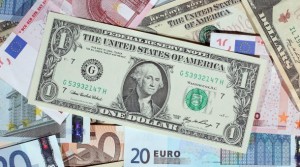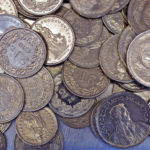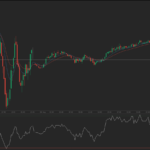 The euro touched the strongest level in more than two weeks against the US dollar, following the release of the Federal Reserve minutes that played down forecasts by some of the central bank’s own officials that borrowing costs might rise faster than previously estimated.
The euro touched the strongest level in more than two weeks against the US dollar, following the release of the Federal Reserve minutes that played down forecasts by some of the central bank’s own officials that borrowing costs might rise faster than previously estimated.
EUR/USD touched a session high at 00:45 GMT, after which consolidation followed at 1.3863, adding 0.06% for the day. Support was likely to be received at April 9th low, 1.3780, while resistance was to be met at March 24th high, 1.3876.
Greenbacks demand was pressured after the minutes from the March 18-19 Fed policy meeting, at which bond-buying was trimmed for a third time, revealed that some bank’s policy makers said that projections for an interest-rate increase might be overstated.
Federal Reserve Chair Janet Yellen said last month the central bank’s bond-buying program may be brought to an end this fall, suggesting borrowing costs may start rising by mid-2015.
“Several participants noted that the increase in the median projection overstated the shift in the projections,” according to yesterdays Fed minutes, cited by Bloomberg. Some of them expressed concern the rate forecasts “could be misconstrued as indicating a move by the committee to a less accommodative reaction function.”
The Federal Reserve trimmed its monthly bond-buying program by $10 billion at the last three meetings, leaving bond purchases at $55 billion per month, while maintaining its target for overnight lending between banks in a range of zero to 0.25% for six years now.
Meanwhile, consumer prices in the euro area rose 0.5% last month, which was a quarter of the ECBs target of just below 2% and the weakest since October 2009. That prompted the ECB President Mario Draghi to say last week that central bank’s officials “do not exclude further monetary policy easing” and the Governing Council of the central bank had discussed possible measures to fight against deflation. Draghi also added that all the members were “unanimous” that the ECB should explore new policy avenues, contrary to what some officials commented later.
ECB executive board member Yves Mersch said deflationary risks weren’t “imminent” and Governing Council member Ewald Nowotny signaled the policy makers don’t need to take immediate actions.
The deflation risks in the 18-nation common currency area are coupled with a strong exchange rate, which curbs the competitiveness of the euro zones exporters and undermines the economic recovery. The euro has advanced almost 6% against the greenback in the past 12 months.
The exchange rate is not part of the political prerogatives of the ECB, but Draghi commented that he is watching it “with attention”.
Sixty percent of economists, in a Bloomberg News poll, forecast the central bank may take steps to weaken the euro.
Both, French Prime Minister Manuel Valls and his Spanish colleague, Mariano Rahoy criticized yesterday the European Central Bank for not taking action against the strong excahnge rate of the euro, which according to them stumbles the economic recovery in the euro zone.
Should the euro rise beyond $1.40, the European Central Bank will probably intervene.
“$1.40 could be a level where the ECB will get a little bit nervous and might intervene verbally in the market,” said Sintje Boie, an analyst at HSH Nordbank AG in Hamburg, cited by Bloomberg. “But the ECB will not commit to a fixed level.”





